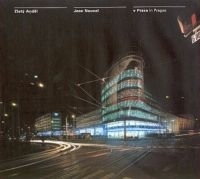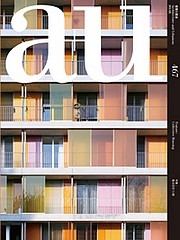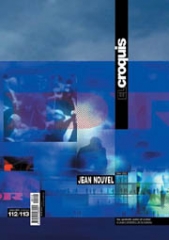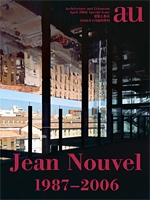
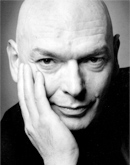
Jean Nouvel
*12. 8. 1945 – Fumel, France
10 Cité d’Angoulême, F-75011 Paris
+33 1 49 23 83 83
+33 1 43 14 81 10
[email protected]
www.jeannouvel.com
+33 1 49 23 83 83
+33 1 43 14 81 10
[email protected]
www.jeannouvel.com
Biography
1964-71 - studied at the Ecole des Beaux-Arts in Bordeaux1970 - began an active career together with François Seigneur
1976 - founded the 'Mars 1976' movement
1988 - opened the architectural office Nouvel, Cattani & Associés
1991 - vice president of the Institut Français d'Architecture
1993 - honorary member of the American AIA
2005 - received the Wolf Prize in Arts
2008 - received the Pritzker Architecture Prize
Members of the high-tech movement, to which Jean Nouvel undoubtedly belongs with a significant part of his work, are often criticized for the weak conceptual and philosophical foundation of their creations. Aside from a few hard technological dogmas (serial production, dry assembly, nothing but metal, glass, and plastics, portability, the building constructs itself, etc.), most high-tech architects evidently get by with a simple belief in the goodness of technical and civilizational progress.
Nouvel is an exception. He also appears as a pure, albeit somewhat more skeptical and wiser progressive. However, he distinguishes himself from other high-tech architects by his economical effort to give his work a deeper intellectual foundation. In the chaos of today’s world, according to Nouvel, an architect cannot orient himself without the help of modern science and philosophy.
Studying the texts of contemporary French philosophers - Foucault, Guattari, Deleuze - gives Nouvel’s work a different direction than the overly stylistic and overly aesthetic one, to which the philosopher Jacques Derrida inadvertently inspired deconstructivist architecture. Modern philosophy teaches Nouvel to think about the realities of today's world, providing order and substance to his design methods and concepts.
Prof. Rostislav Švácha, ARCHITEKT 19/96, p.52
The English translation is powered by AI tool. Switch to Czech to view the original text source.
Realizations and projects
CLMBBDO Headquarters
Paris, 1992Other buildings
Cartier Factory, Villeret, Switzerland, 1992 Library, Paris, 1992
Hotel les Thermes, Dax, 1991-92
Mediapark, Cologne/Rhine, 1991-95
experimental residential buildings, Bezons, 1990
building of the publishing house DuMont Schauberg Verlag, Cologne/Rhine, 1990
Cultural center, Saint-Quentin-en-Yvelines, 1990
Congress center (in collaboration with E. Cattani), Tours, 1989-94
administrative building of the advertising agency CLM/BBDO, Paris, 1988-92
Hotel Saint-James, Bordeaux, 1988-89
Opera building, Tokyo, 1986
National Institute of Scientific and Technical Information INIST, Nancy, 1985-89
experimental residential buildings, Saint-Ouen, 1983-86
rest center "Les Godets", Antony, 1982
cultural center "La Coupole", Combs-la-Ville Melun-Sénart, 1981-86
City Theater, Belfort, 1980-83
Center for Medicine and Surgery Val Notre-Dame, Bezons, 1978-80
College Anne Frank, Antony, 1978-80
kindergarten, Trélissac, 1974
0 comments
add comment




